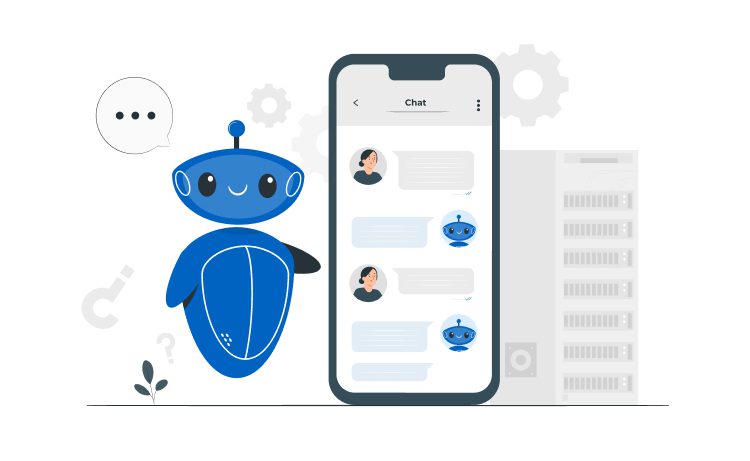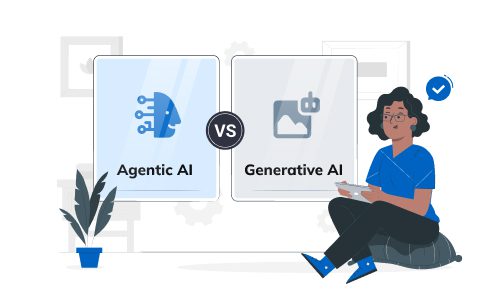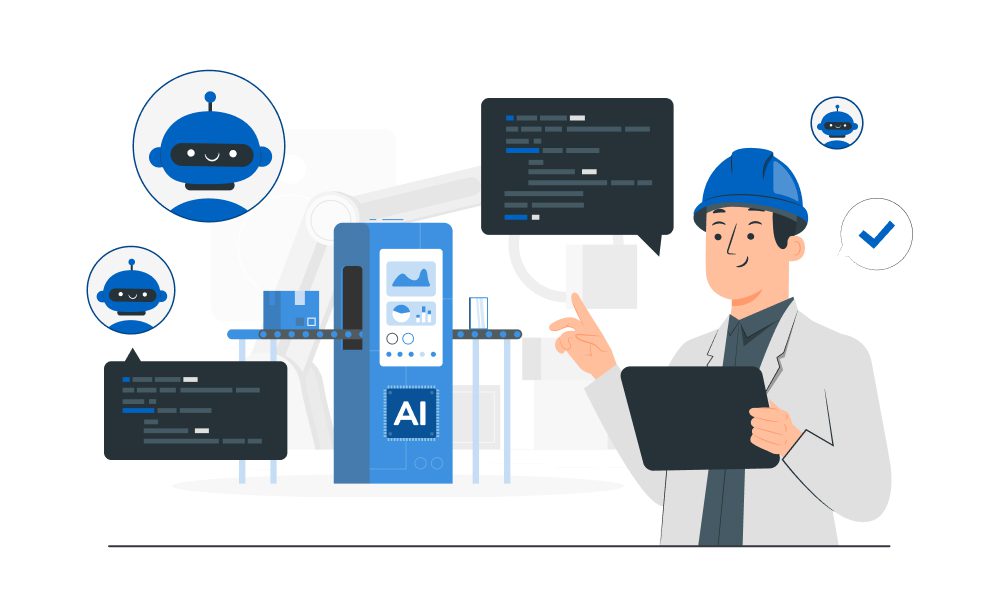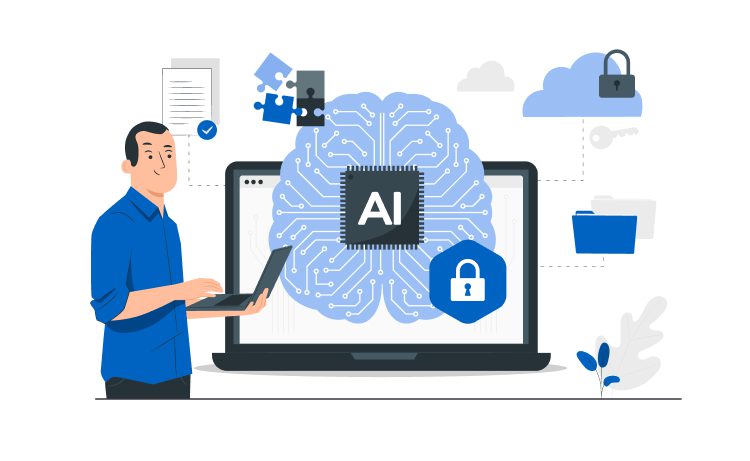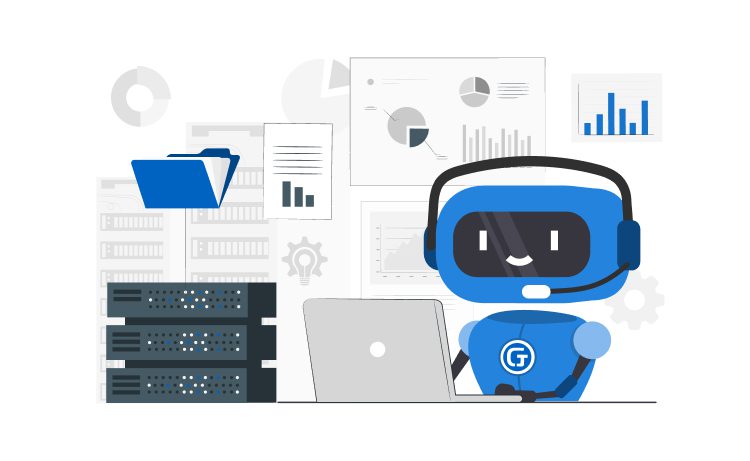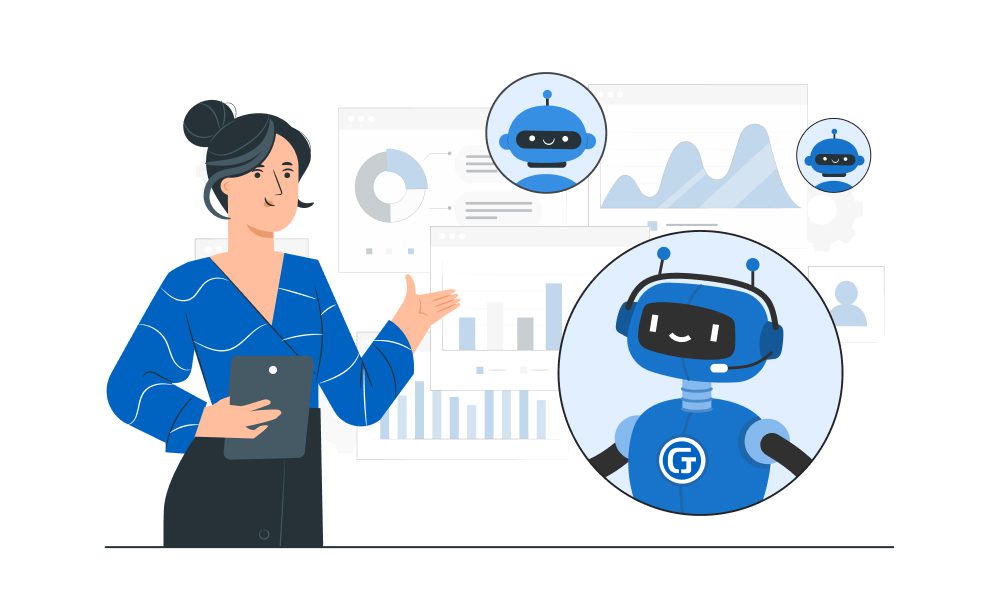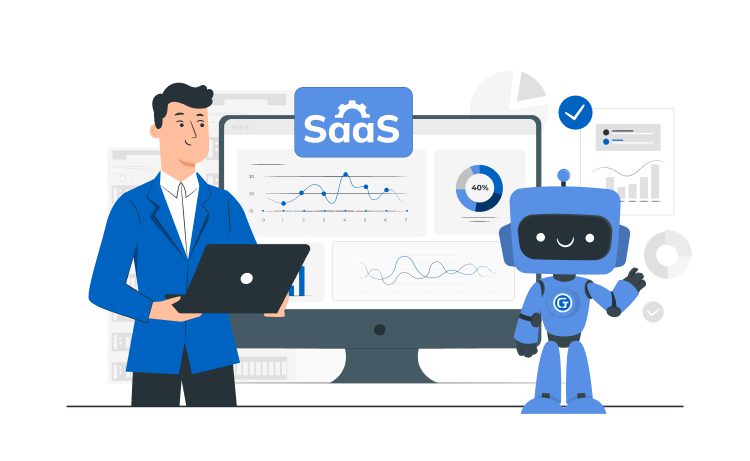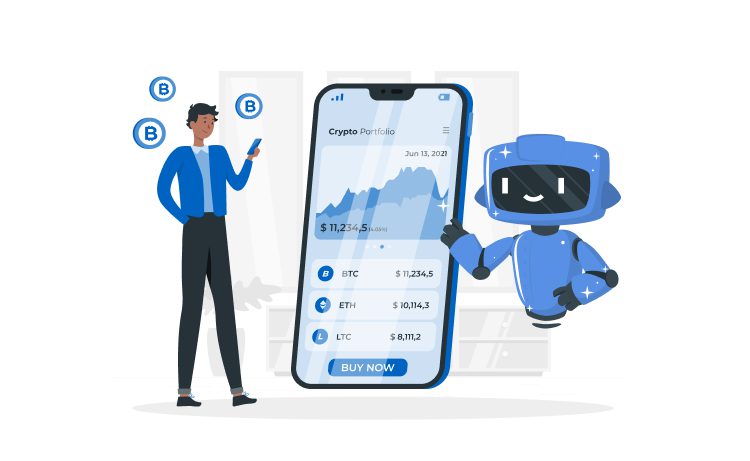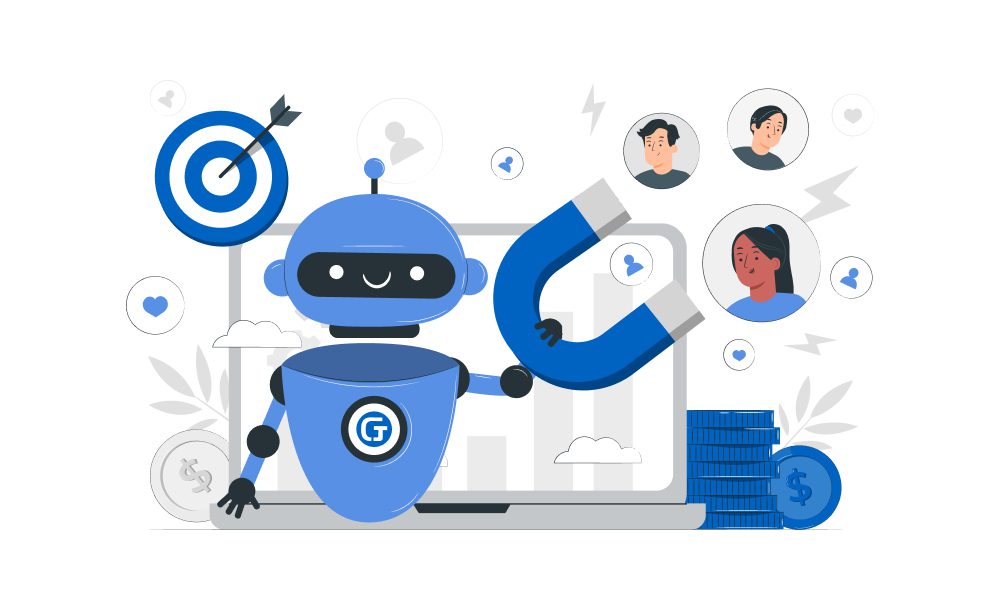
How AI Sales Agents Automate Away Your Biggest Productivity Drains



Hiring a talented sales agent fueled by energy and ready to connect with clients is always exciting. They’re ready to build relationships and close deals. But instead of doing what they do best-selling – they spend hours drowning in paperwork, chasing follow-ups, and sifting through endless data. By the time they finally get to an actual customer, their energy is drained, and opportunities have already slipped away.
The reality is that most sales professionals join this field for the thrill of human connection, the art of persuasion, problem-solving, and building trust. Yet, studies show that 71% of sales reps spend too much time on data entry and not enough on actually selling the product. This can affect productivity, quota, customer loyalty, and company revenue.
What if your sales team could have intelligent assistants who didn’t require intervention and could handle all the mundane, repetitive tasks without losing leads? AI sales agents already do this for many companies, handling all the tedious work, automating follow-ups, processing data instantly, and optimizing workflows.
In this article, we’ll show you how you can optimize your sales processes, help your sales reps reduce the workload, and increase productivity alongside revenue with AI sales agents.
Content
AI sales agents are intelligent software designed to automate significant aspects of the sales process. They handle monotonous and repetitive tasks, so your sales staff doesn’t have to. These digital assistants handle lead qualification, follow-up scheduling, and data analysis with precision. They can even chat with customers, answer questions, or redirect them to human salespeople. Think of it as giving every salesperson a super-efficient robotic teammate that works 24/7.
AI sales agents have become quite popular recently since they help companies redefine their workflows, maximize revenue, and ensure no opportunity slips through the cracks. In fact, recent research shows that 83% of sales teams using AI in their daily work saw increased revenue and productivity.
So, what do sales AI agents do that attracts so many sales companies? To understand this better, let’s explore some of the sales AI agent types you may commonly encounter.
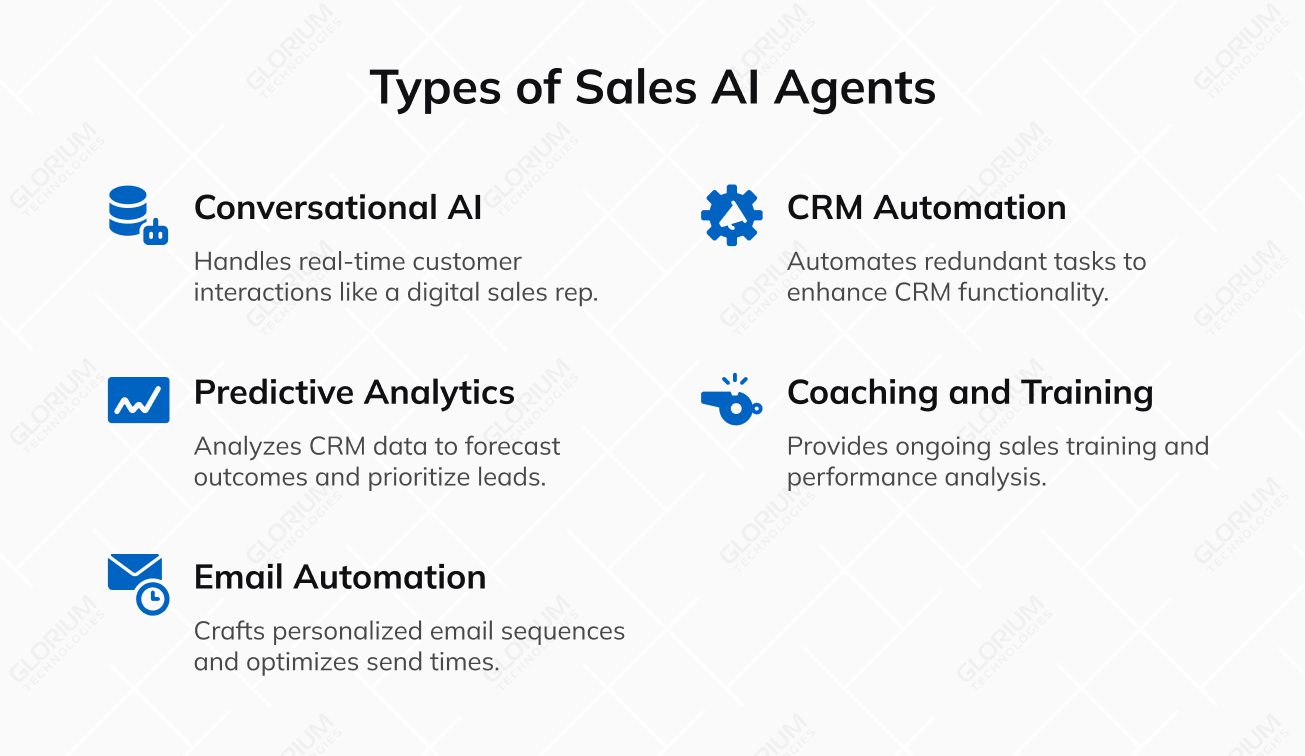
AI agents for sales companies perform various tasks. They’re not just a one-size-fits-all solution – they can be specialized to handle distinct challenges across the sales cycle. They can automate conversations, predict your next big deal, handle repetitive tasks, and more. Let’s explore six common types of agents in sales:
These tools act like your 24/7 digital sales reps and can easily handle real-time customer interactions. You’ve seen these agents before – they answer questions, book meetings, qualify leads, etc. These can be:
These agents use advanced data science to analyze patterns in your CRM and forecast outcomes. They can prioritize hot leads and tell you exactly where you need to put your efforts to maximize results. These can be:
These AI agents can craft personalized sequences and optimize send times to improve email campaigns. These can be:
If you’re tired of manual data entry, these AI agents can help you. They automate redundant tasks, turning your CRM into a truly intelligent system. These can be:
These agents can accelerate deal-closing. These can be:
Consider this type of AI agent as your always-on sales trainer. These tools can analyze call patterns and top-performer strategies and coach your sales teams on improving their pitch and closing more deals. These can be:
Did you find an agent that looks like you could use? Or are you looking for something more personalized and specific? We can help you build AI agents that handle your business challenges like a pro.
AI sales agents are transforming the sales process – but not all are created equal. The most powerful agents usually combine automation, intelligence, and seamless integration to create real value and increase revenue. Below, we’ll explore some of the must-have features that separate basic chatbots from true AI-powered sales agents.
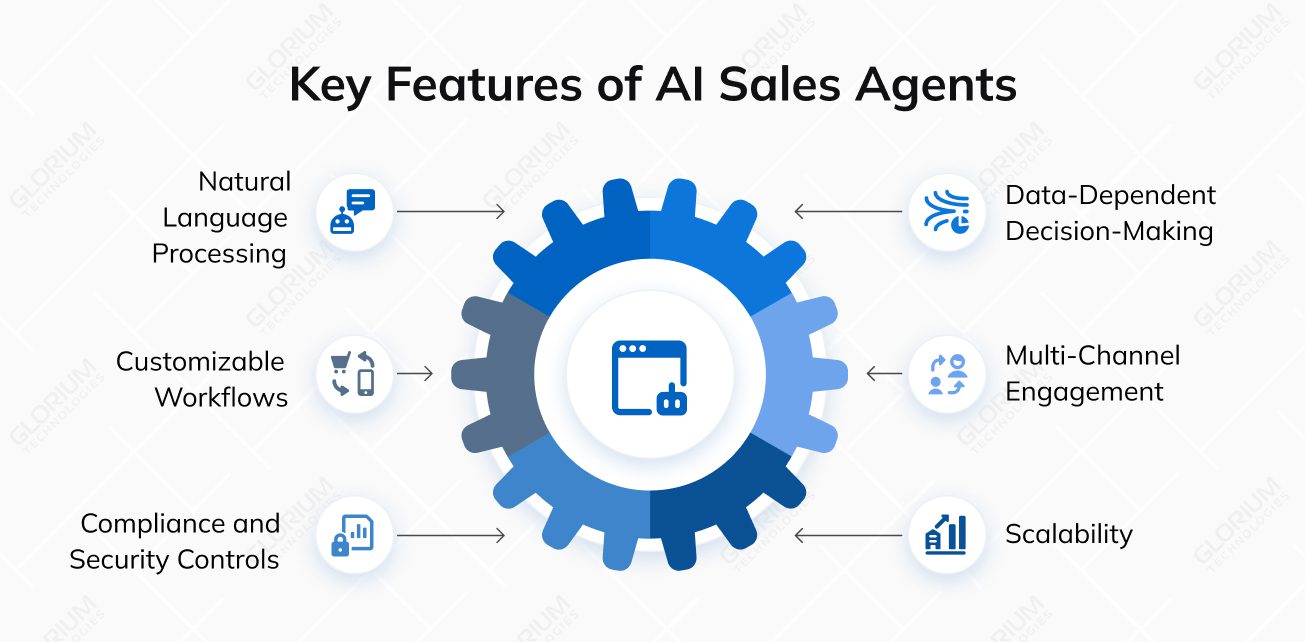
Building the best AI sales agents requires expertise, a professional team, and the right frameworks. If you’re interested in learning more about building AI agents without being an AI expert, we have a guide that covers it all.
What are the benefits of using AI agents in sales and marketing? They automate workflows, remove redundant work, and help salespeople with monotonous data-entry tasks. We already know how amazing AI agents for sales can be, but seeing them in action helps us understand their true power better. So, let’s explore some of the best AI sales agents on the market and how they’ve profited the companies.
Amazon is a significant player in the retail industry, with thousands of salespeople and various sales strategies, making it a hub for large amounts of data, repetitive tasks, and lots of customer interaction. The company turned to an AI-powered contact center to manage customer inquiries, easing their human agents’ workload. The AI’s insights improved cross-selling and upselling strategies, making it easier to spot new sales opportunities. This approach cut operating costs while boosting customer satisfaction. Additionally, Amazon received the following benefits:
These retailers have started leveraging sales and marketing AI agents for their marketing platforms to create hyper-personalized customer experiences. Their AI agents analyze purchase history and customer behavior to automatically generate personalized emails, SMS campaigns, and other messaging. This approach has resulted in improved engagement and increased sales conversions. Additionally:
Integrating an AI agent for sales in your company doesn’t mean replacing your sales team. It means you’ll be equipping your professionals with an intelligent assistant that can handle repetitive tasks while they focus on selling. The setup process is simpler than you can imagine; however, you’ll have to make a few decisions and do some research before you start thinking about integration.
You can choose an out-of-the-box agent for everyday tasks like lead follow-ups and CRM updates or build a custom agent to tailor workflows to your unique sales process. We recommend creating a customized sales agent since it also allows you to grow your business without buying extra software or making costly adjustments.
Do some research and learn more about the ins and outs of your company. What are your current challenges? What could be improved? Where does the AI agent come in? Answer the most significant questions and understand how the agent can help you and your sales team.
This step requires you to collect and refine the data, integrate your agent with your CRM, sync with email platforms, calendars, and more. Once this is done, you start training your AI assistant, defining roles, setting up rules and guardrails, uploading scripts, and more.
Once you have everything set up and your agent is trained, you need to test it before full deployment. Run controlled pilots with small lead batches, refine based on actual performance data and adjust if necessary.
Once you’re sure all your inputs are accurate, the agent is trained, and the testing phase shows no issues, the agent is ready to go live. Start with a limited scope and then expand. And don’t forget to update training materials continuously.
If your sales team is wasting 60% of their day on monotonous tasks and data entry, you need to create an intelligent assistant that’ll let your professionals sell products and build relationships.
We can help you choose the right frameworks, understand your challenges, and create a customized AI agent for sales teams. Want to know how? Fill out our contact form and request a discovery call with our representative, where you can ask questions, talk about your challenges, and discuss opportunities.
